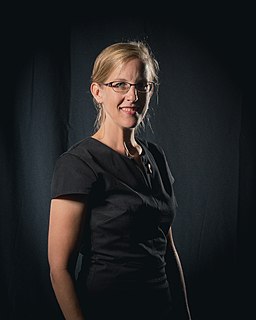A Quote by Kazuo Ishiguro
Many of our deepest motives come, not from an adult logic of how things work in the world, but out of something that is frozen from childhood.
Related Quotes
I always looked forward to being an adult, because I thought the adult world was, well—adult. That adults weren’t cliquey or nasty, that the whole notion of being cool, or in, or popular would case to be the arbiter of all things social, but I was beginning to realize that the adult world was as nonsensically brutal and socially perilous as the kingdom of childhood.
Childhood is the world of miracle or of magic: it is as if creation rose luminously out of the night, all new and fresh and astonishing. Childhood is over the moment things are no longer astonishing. When the world gives you a feeling of "déjà vu," when you are used to existence, you become an adult.
That's how you write novels actually. You suddenly hit upon something and you realize this is the path you were meant to take. You'd be a fool if you didn't follow it. Perhaps it's like solving a difficult question in pure mathematics. There must be a moment when the solution is so simple and evident that you wonder why you hadn't come upon it before. When you do come upon it, you know it in the deepest part of your being. It carries its own logic.
Nature is a hanging judge," goes an old saying. Many tragedies come from our physical and cognitive makeup. Our bodies are extraordinarily improbable arrangements of matter, with many ways for things to go wrong and only a few ways for things to go right. We are certain to die, and smart enough to know it. Our minds are adapted to a world that no longer exists, prone to misunderstandings correctable only by arduous education, and condemned to perplexity about the deepest questions we can ascertain.
Intrinsic security doesn't come from what other people think of us or how they treat us. It doesn't come from our circumstance or out position. It comes from within. It comes from accurate paradigms and correct principles deep in our own mind and heart. It comes from inside-out congruence, from living a life of integrity in which our daily habits reflect our deepest values.
In childhood our credulity serves us well. It helps us to pack, with extraordinary rapidity, our skulls full of the wisdom of our parents and our ancestors. But if we don't grow out of it in the fullness of time, our ... nature makes us a sitting target for astrologers, mediums, gurus, evangelists, and quacks. We need to replace the automatic credulity of childhood with the constructive skepticism of adult science.
Alan Rocke's Image and Reality does so many things vividly and convincingly: it shows how visual images led chemistry step by step to the reality of the microscopic world; how simple portrayals of the logic of substitution and combination were reified; brings to our attention the imaginative, neglected work of Williamson and Kopp; and takes a critical look at Kekule's daydream. And it beautifully delineates the essential place the imagination has in science. A rewarding, lively picture of chemistry in formation.
I believe the person who was out conquering the world, who was out fighting in the world were our fathers, so to have them come... I adored my father more than anyone in the world, but my father had more advice on work policies and how to get a job and how to survive in the work environment than my mother because my mother never worked outside of the home. So I think the support of fathers is very important.
The world of shapes, lines, curves, and solids is as varied as the world of numbers, and it is only our long-satisfied possession of Euclidean geometry that offers us the impression, or the illusion, that it has, that world, already been encompassed in a manageable intellectual structure. The lineaments of that structure are well known: as in the rest of life, something is given and something is gotten; but the logic behind those lineaments is apt to pass unnoticed, and it is the logic that controls the system.
Repetition is hell. How can we get out of those cycles of violence? How come we are still today talking about peace in Israel? How come we're not able to find a solution yet? Something that will bring peace in this part of the world? It's the same in a lot of places in the world right now. How come we are not able to find peace?







































